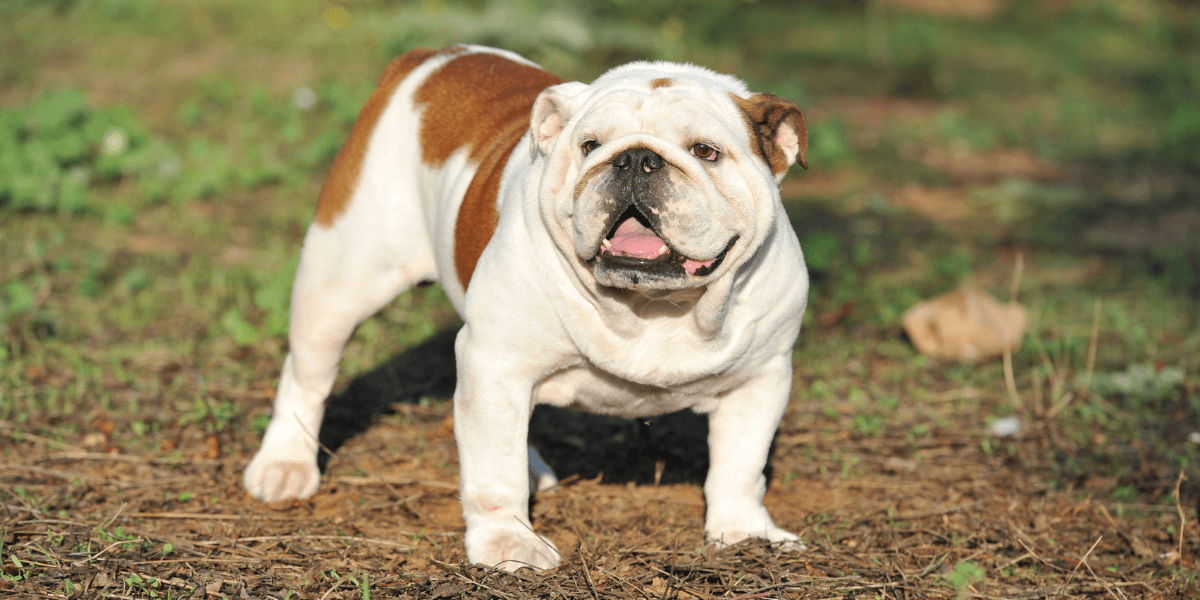Introduction
Best Diet for English Bulldog: Understanding the unique nutritional needs of English Bulldogs
- Tailoring meals to address common health issues like obesity and skin problems
- Choosing high-quality ingredients that promote overall wellness and longevity
- Balancing proteins, fats, and carbs for optimal energy and health
- Tips for avoiding common dietary pitfalls and ensuring your Bulldog’s diet is complete
- The role of supplements and treats in maintaining a healthy diet
1. Understanding the Nutritional Needs of English Bulldogs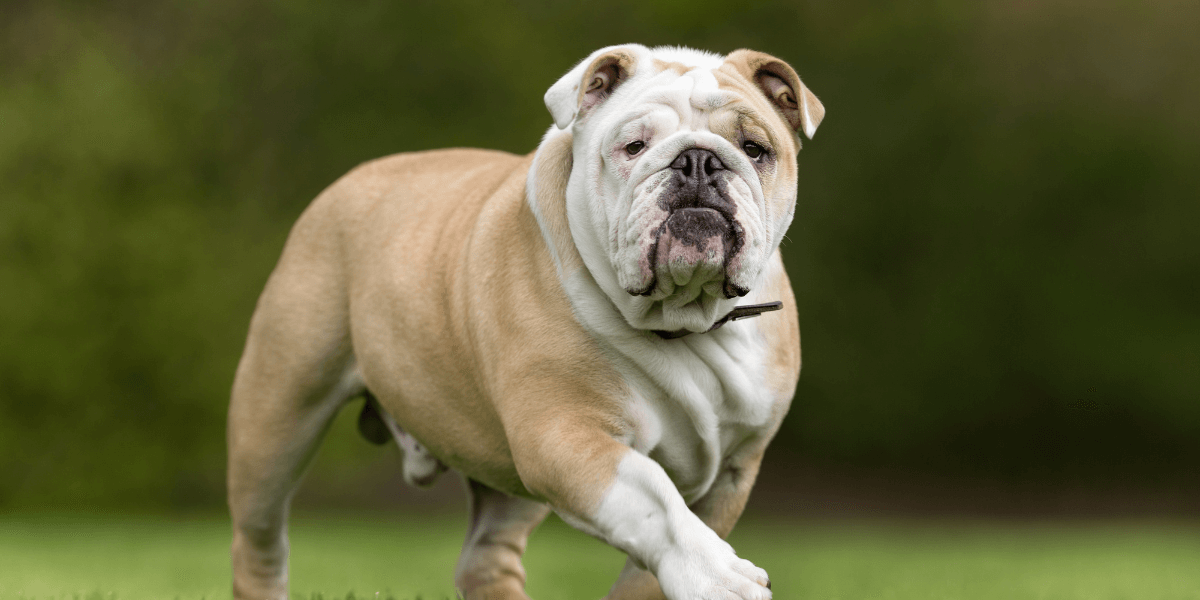
Their dietary needs are influenced by their unique physical structure and predisposition.
Key Nutritional Needs:
- Protein: Look for high-quality animal proteins like chicken, beef, or fish
- Fat: Provides energy and supports skin health, Choose sources like fish oil
- Fiber: Supports healthy digestion; include sources like pumpkin or sweet potatoes
- Omega-3 Fatty Acids: Enhance skin and coat health; include sources like flaxseed
- Carbohydrates: Important for energy and digestion, Opt for whole grains and vegetables
- Vitamins and Minerals: Ensure a balanced intake of essential vitamins and minerals
2. Choosing the Right Dog Food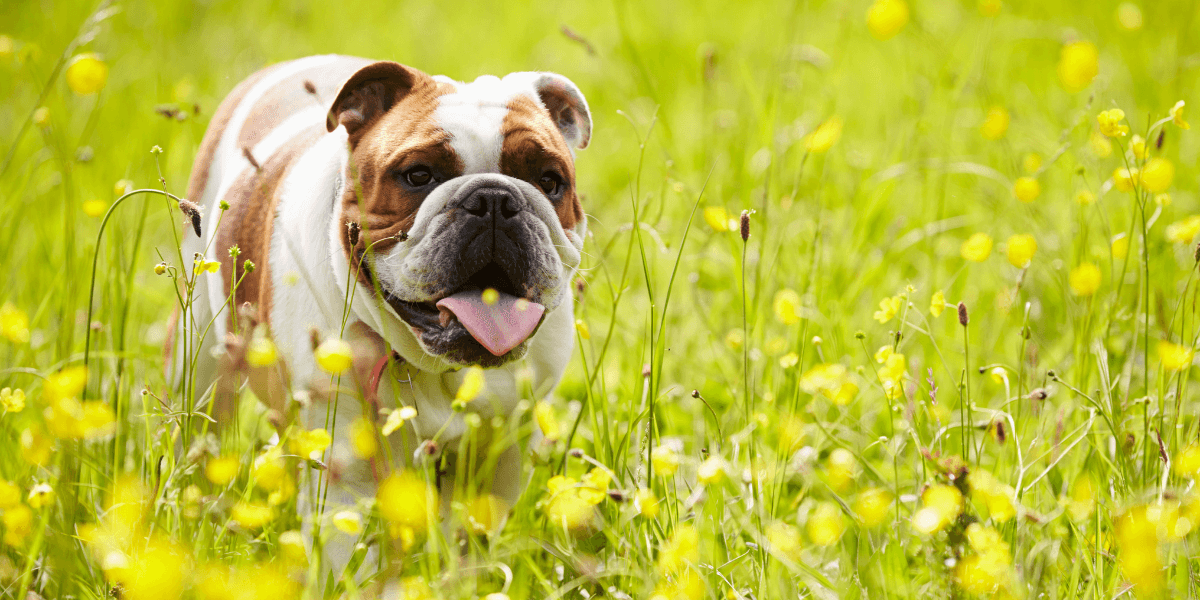
Selecting the right dog food is crucial for your English Bulldog’s health.
What to Look For:
- High-Quality Ingredients: Choose foods with real meat listed as the first ingredient
- Breed-Specific Formulas: Some brands offer foods specially formulated for Bulldogs
- Limited Fillers and Artificial Additives: Avoid foods with excessive fillers or preservatives
Recommended Brands:
- Royal Canin Breed Health Nutrition Bulldog – Tailored for Bulldogs with specific nutrient needs
- Hill’s Science Diet Adult Bulldog – Offers balanced nutrition with high-quality ingredients
3. Portion Control and Feeding Guidelines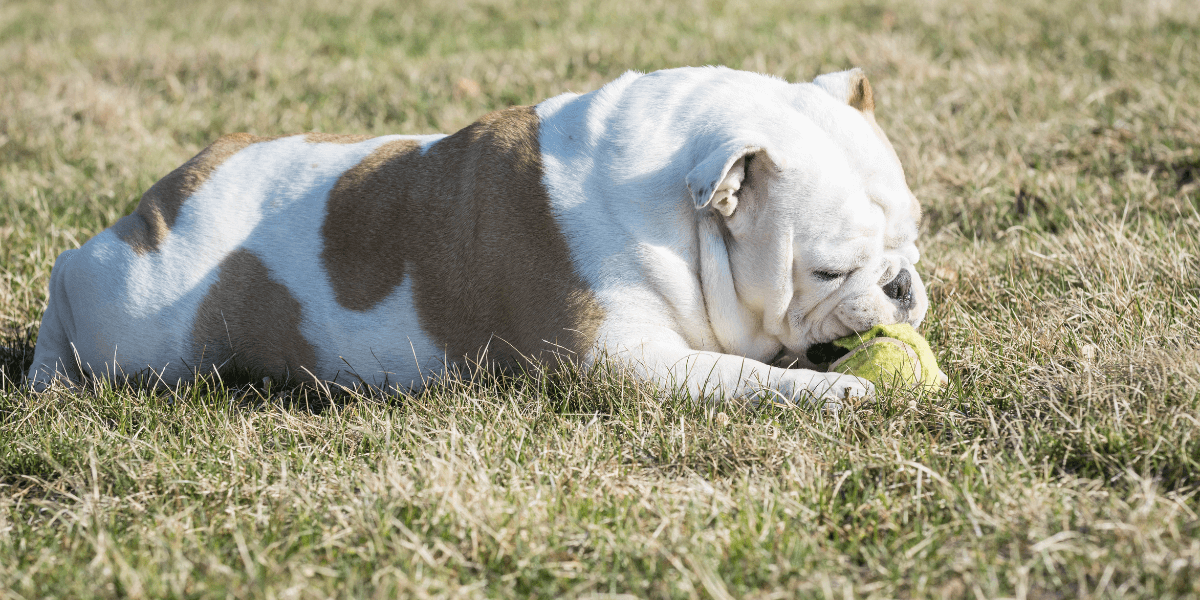
Proper portion control is key to maintaining a healthy weight for your English Bulldog.
Feeding Tips:
- Recommended Serving Size: Adhere to the feeding guidelines provided
- Monitor Weight and Adjust Portions: Regularly check your dog’s weight and adjust portions
- Meal Frequency: Feed your dog at consistent times each day to maintain routine
- Avoid Overfeeding: Measure out portions to prevent excessive calorie intake
- Hydration: Ensure access to fresh water, as it’s crucial for overall health
- Consider Their Activity Level: Adjust food intake based on their activity level
4. Addressing Common Health Issues Through Diet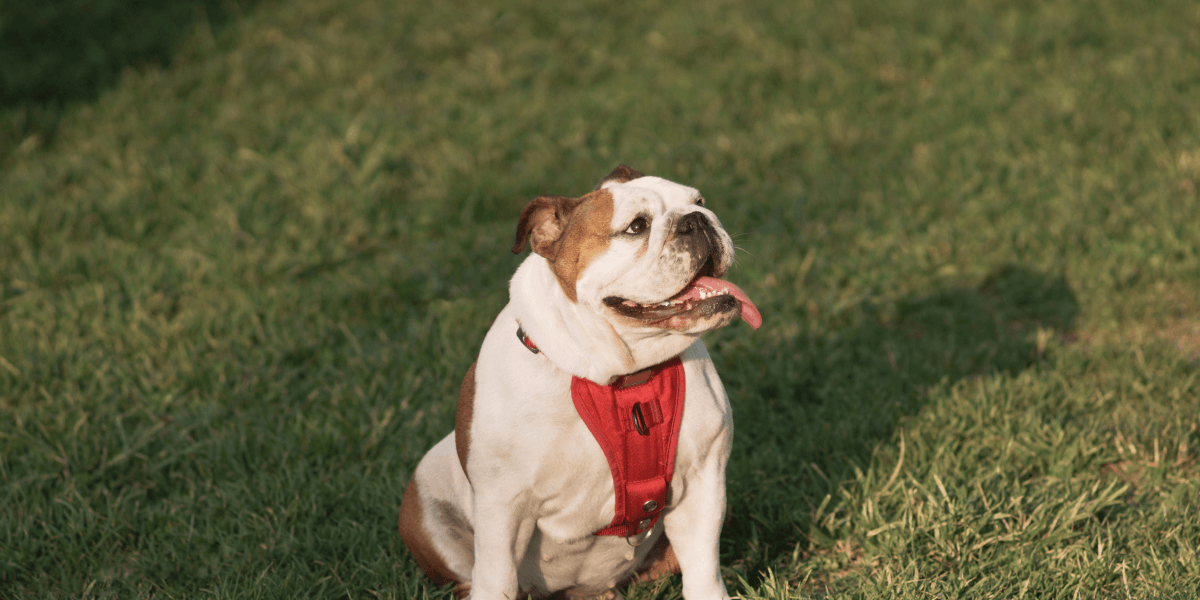
English Bulldogs are prone to certain health issues that can be managed through diet.
Common Issues:
- Skin Problems: Opt for foods with omega-3 fatty acids to support skin health
- Joint Health: Include glucosamine and chondroitin in their diet to support joint function
- Digestive Issues: Choose easily digestible foods with probiotics for gut health
- Dental Health: Incorporate kibble designed to reduce plaque and tartar buildup
- Allergies: Use hypoallergenic diets to manage food sensitivities and allergies
5. Homemade vs. Commercial Dog Food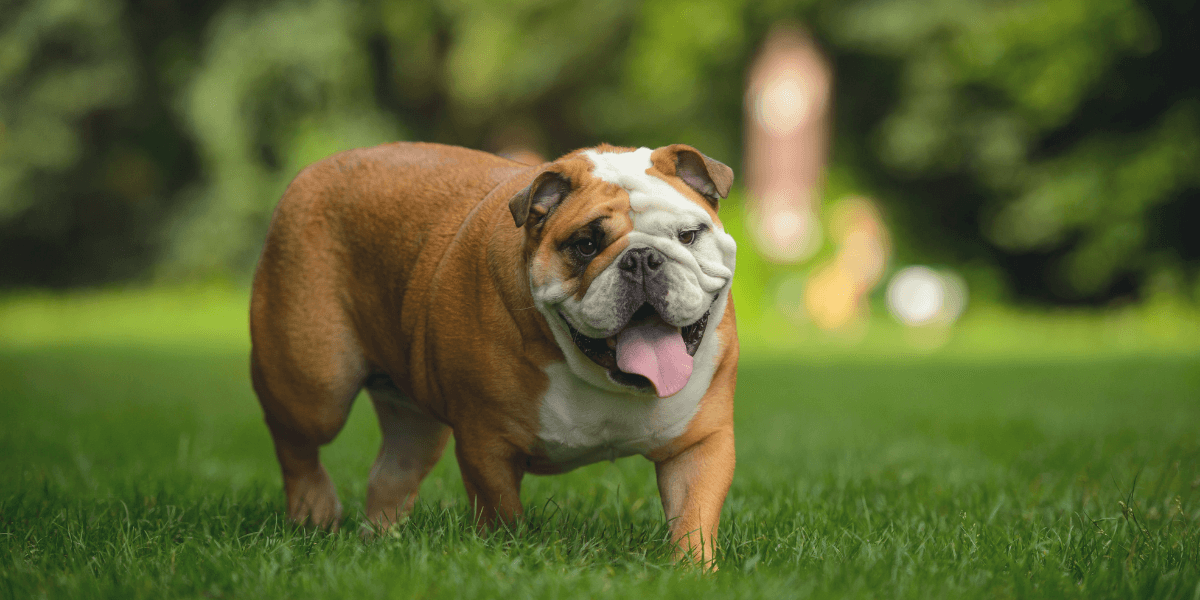
The debate between homemade and commercial dog food is ongoing.
Homemade Food:
- Pros: Control over ingredients, fresh and natural options
- Cons: Requires careful planning to ensure balanced nutrition
Commercial Food:
- Pros: Convenient, nutritionally balanced, and often tailored for specific breeds
- Cons: Quality can vary; some brands include fillers or additives
6. Treats and Supplements
Treats and supplements can complement your English Bulldog’s diet.
Best Practices:
- Choose Healthy Treats: Opt for treats with natural ingredients and minimal additives
- Use Supplements Wisely: Only use supplements if recommended by your vet
Recommended Treats:
- Greenies Dental Chews – Good for oral health
- Zuke’s Mini Naturals – Low-calorie treats for training
7. Consulting Your Veterinarian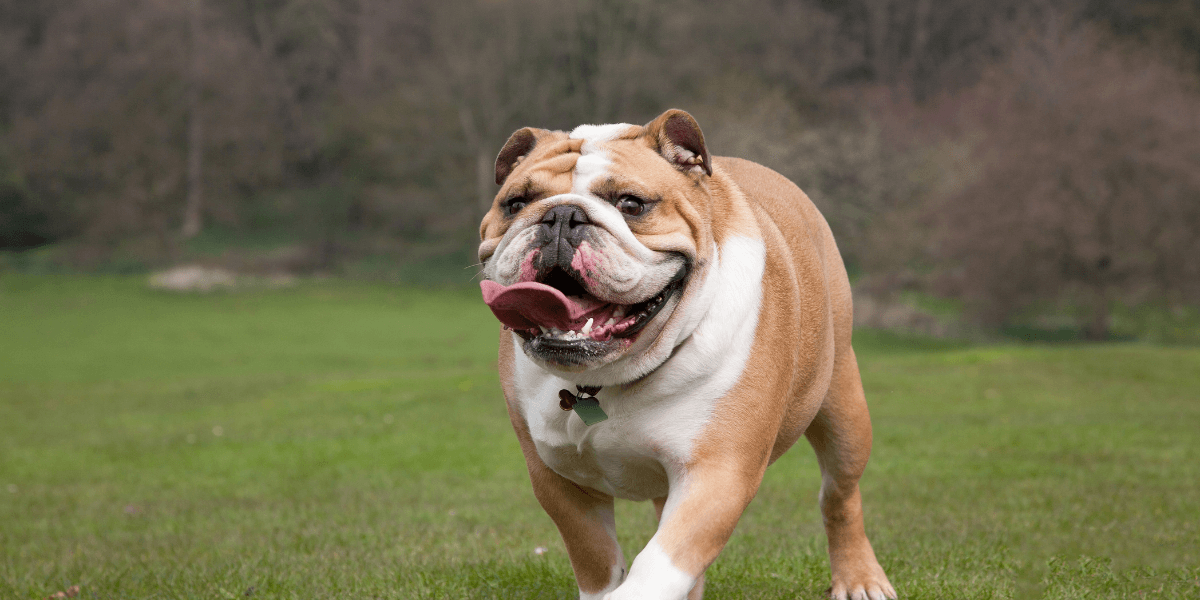
Always consult your veterinarian before making significant changes to your Bulldog’s diet.
Why It’s Important:
- Personalized Advice: Tailor the diet to your Bulldog’s specific needs
- Health Monitoring: Regular check-ups to address any dietary concerns
- Expert Recommendations: Get advice from a vet on premium or specialized foods
- Nutritional Balance: Ensure your Bulldog's diet is balanced for optimal health
- Early Detection: Spot potential issues early through regular veterinary visits
- Diet Adjustments: Adjustments based on changes in health or weight
FAQs
1. What is the best diet for English Bulldog?
- The blog post provides detailed diet recommendations for optimal health
2. Can I feed my English Bulldog commercial dog food?
- Yes, high-quality commercial dog food can meet their nutritional needs
3. What are the top ingredients to look for in Bulldog food?
- Look for high protein, healthy fats, and essential vitamins and minerals
4. How often should I feed my English Bulldog?
- The recommended feeding schedule is typically twice a day, with portion control
5. Are there specific foods to avoid for English Bulldogs?
- Avoid foods with fillers, excessive fat, and artificial additives
6. Does the Best Diet for English Bulldog vary by age?
- Yes, puppies, adults, and seniors have different nutritional requirements
7. How can I know if my Bulldog is getting the right nutrients?
- Regular vet check-ups and monitoring weight and coat condition can help
Conclusion
- Best Diet for English Bulldog: Summarize the essential nutritional needs for optimal health
- Reiterate the importance of high-quality ingredients and balanced meals
- Highlight tips for monitoring your Bulldog’s weight and adjusting their diet
- Emphasize the benefits of regular vet check-ups to tailor the diet as needed
- Explore recommended foods and supplements for a healthier Bulldog
Share this guide with fellow Bulldog owners and leave a comment below!
References
For more information on The Best Diet for English Bulldog, check:
- Ideal Diet for Bulldogs – The Ultimate Bulldog Feeding Guide
- The Best Diet for English Bulldog
- Orthopedic Dog Beds for Large Dogs: A Comprehensive Guide
- Top Orthopedic Beds for Large Dogs with Hip Dysplasia
- 5 Best Natural Dog Food Ingredients for English Bulldogs
Thank you!


